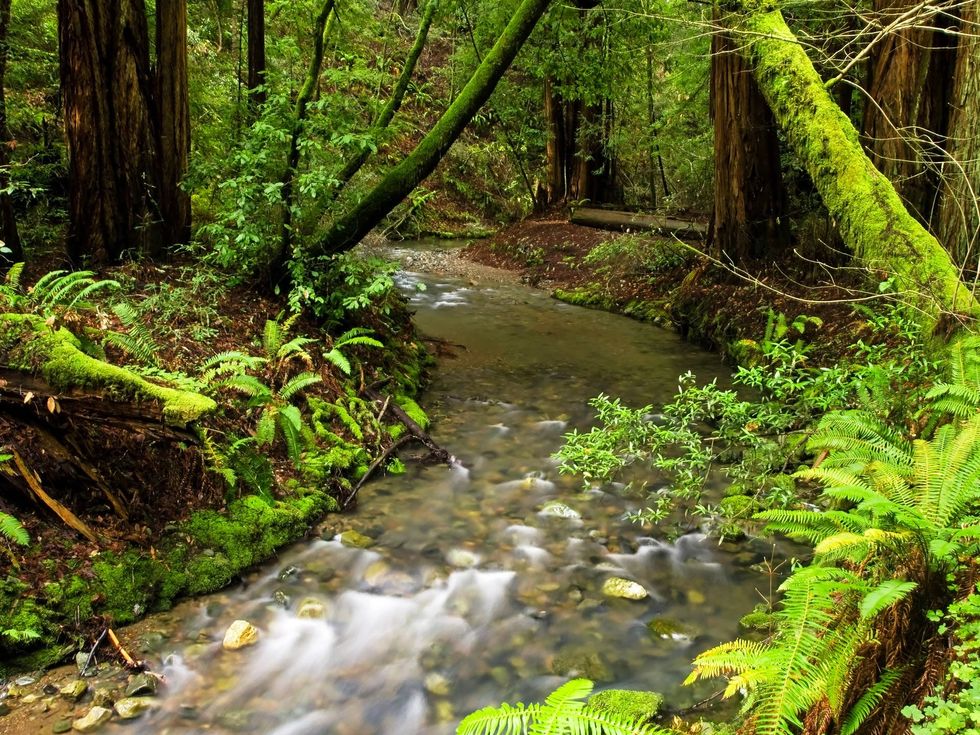Everyone needs to take a moment to reflect on little, life-changing moments.
They exist.
…
I like to rate hugs.
There are mediocre hugs, like those you exchange with your mother quickly before you leave for dinner with your friends. There are terrible hugs, like those you unknowingly consent to when you go in for a handshake and the other guy mistakes it for an invitation to embrace. And there are wonderful hugs, that warm contact between you and your best friend before she leaves for college 2,000 miles away from you. No matter the quality of the hug, however, each one is so unique it cannot be anything but comforting, because it is a mutual expression of the value you place in another person, the respect you have for how they have contributed to your life in the moments preceding the exchange.
My favorite hug was a mediocre hug at best - but it encapsulated all of the respect and love I shared mutually with a child who just wanted to play softball with me - a child with a bright smile and immense determination and Down Syndrome.
I chose to participate in a non-profit organization called "Sports Made Possible" in June 2017. It was 90 degrees that day, and, coupled with my uncoordinated nature and lack of muscle, I was destined for failure. The program requires volunteers to help disabled children to play softball.
I had never played softball.
I was nervous, of course, as I lacked any knowledge of the rules of techniques of the game. My pride and I were in it together, and it likes to try to convince me not to do things I won't excel at. But I got there, and I saw the smiles on everyone's face (volunteer and child alike), and I couldn't help but swallow my pride and banish it to the depths of my distaste in favor of making someone's day just a little bit brighter. I ran with wheelchairs, often tripping and catching myself on the handles; I tossed softballs into the air as gently as I could with the grandest gesture I could muster and watched eyebrows furrow as the ball made contact with the plastic bat; I cheered and whooped and shook pom-poms as one of my new friends persevered and crossed home plate.
I chose to participate in an activity I had no experience in, trained my body to acknowledge the rules and bend them when needed, and realized the satisfaction of making children smile as they ran around a field in the 90-degree heat.
I laughed at my mistakes and inabilities and allowed myself to help others gain a sense of recognition and respect for their dedication.
And I got a mediocre hug from a new friend. That was worth all the humiliation in the world.
When I was younger, I told my mother I would never become a politician. Politicians were sleazy liars with alternate agendas and inherent greed. Politicians only dealt with money, and only used money as a motivator to gain more themselves. I did not want to lose sight of God had gifted us with; I did not want to lose sight of how beautiful simple interaction with one another, and with the natural world, could be. I allowed the pain of intense hiking to transport me through that world and recognized the international need for cooperation in protecting it.
I learned about Le Chatelier's principle in the 10th grade and aced the exam. I learned about ocean acidification 11th grade and aced the exam. I went hiking in California that same year in Muir Woods and saw "caution" signs near saltwater species because they were at risk of extinction. I made the connection between chemistry and negative human influence on the natural world and decided I wanted to prevent it.
I chose to hike because I wanted to experience the natural world in a vulnerable state; I wanted to ache and let the rain massage my limbs, to watch ants climb trees and climb them myself, to identify traces of humanity in the mountains of Colorado and in the Mountains of California. I recognized similarities in pollution, regardless of where I was losing my breath. I chose to let my body become healthier as I sought a means of making the environment healthier, as well.
Perhaps there could be some Biblical connection made between the physical pain of hiking and the identification of my own responsibility in endangering the world around me. A repentance, of sorts. But I choose to let the activity of strengthening myself mirror my future as a diplomat for health and environmental concerns around the world, a strengthening of international relationships with the purpose of maintaining a habitable and hospitable environment.
I hiked all around Colorado, where I saw the Hanging Lake and read about pH contamination of the crystal clear water; I drove to New Mexico and hiked along a gorge with a depth that puzzled me, gained an appreciation for the bittersweet act of sacrificing my own comfort to appreciate what God created; and I traveled to California and hiked near the ocean for the first time, where I recognized the same human impact in an environment unfamiliar to me. I had to move myself to see the need for international cooperation. My body became the vehicle by which I recognized the value of sacrifice in protecting the calm and beauty that exists all around the world.
I sweated, I grew, and I breathed deep to sucked out all the marrow of life. I believe Thoreau would be proud.



















